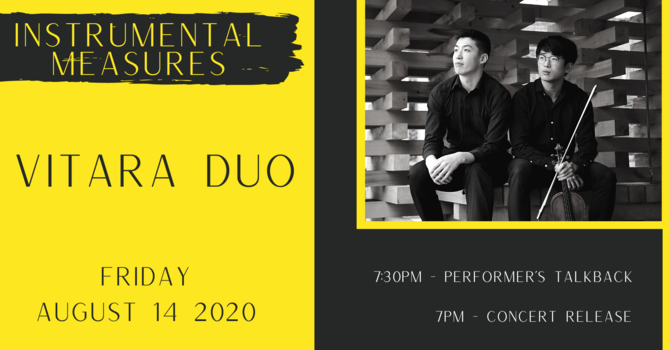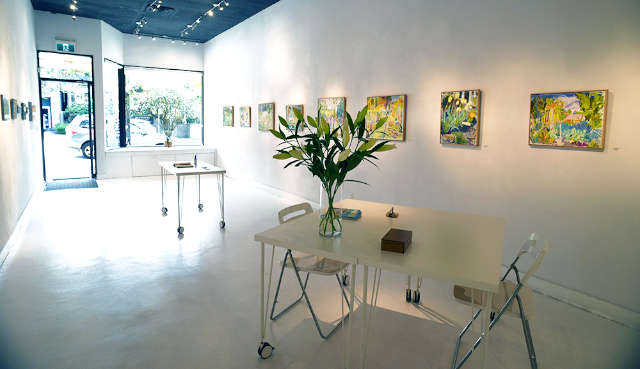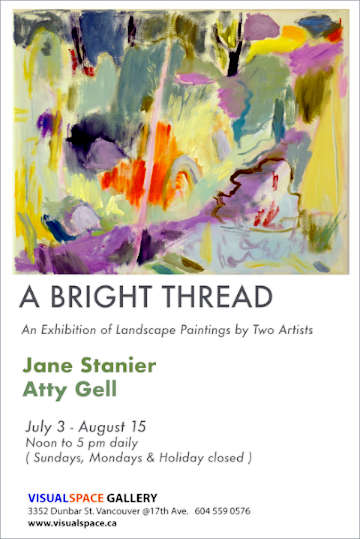
KnoxVan presents Vitara Duo
August 14th 2020
A Virtual, Free Performer Highlight
7PM – Video Release
7:30PM – Performer Talk-back
KnoxVan is proud to present our next free, virtual performer’s highlight in the Instrumental Measures Performer Highlight Series. The video will be released via the Knox website at 7PM. At 7:30PM KnoxVan will be hosting a Performer’s Talkback with the Vitara Duo and we invite you to join us.
About Vitara Duo
The Vitara Duo is a piano and violin duo made up of Kurt Chen (violin) and Anican Yu (piano). They have an innate talent for improvisation and performing by ear, which means that this group can play almost any requested song given fair notice ahead of time to prepare without the need to arrange sheet music! Their strengths lie in repertoire consisting of jazz, ballads, and pop songs. Throughout the summer of 2019, the pair played together at many occasions throughout the Vancouver area. Their versatility allows them to play anywhere – as long as there is a piano or an outlet for an electronic piano!
Kurt Chen (Violinist)
Kurt Chen is a third-year at the UBC School of Music. His interest in violin emerged at the age of four and began learning under Mo Yeung, followed by Siu Feng Wei, Evelyn Creaser-Rumley, and Nicholas Wright. Currently, he studies with David Gillham at UBC. He has been a member of the Vancouver Academy of Music’s orchestras and the Chamber Music Institute. Kurt has had the opportunity to perform and share his passion in a variety of a locations. Most recently, Kurt travelled to Hong Kong to teach young musicians orchestral playing. He also was given the opportunity to attend the Banff International String Quartet Competition with the Kolden Quartet in August of 2016 to learn from talented musicians such as Barry Shiffman and the Dover Quartet.
Anican Yu (Pianist)
Anican Yu always had an aptitude and passion for playing music and performing for others. He is a third-year at the UBC School of Music, studying with Terence Dawson. Throughout his musical career, he has challenged himself to reach higher standards and strive to meet his fullest potential in piano performance. He made his piano debut when won multiple music festivals in Prince George and participated in Provincial Festivals. He also performed at the 2015 Canada Winter Games with the band Bright City Heights. Anican’s playing style includes Classical, Jazz, and Modern music. He played at many weddings, events, and shows throughout his life by himself or with some of Canada’s most exceptional musicians. In Zhengzhou, China, Anican advertised a Music School by performing in numerous shows and venues for the two months he spent over there. His performances inspired and encouraged young musicians to enroll in the school and learn music.
Our Community Partner
Our Community Partner for this highlight is proudly The Visual Space Gallery. The Visual Space Gallery is located on Dunbar Street and the gallery works with local and international artists of many mediums. The gallery also offers a gallery shop, event space and the opportunity for artists to rent the gallery for their own shows and exhibitions. Currently the exhibition A BRIGHT THREAD from two artists, Atty Gell & Jane Stanier is hanging until August 15th. You can find more information on the show and the gallery on their website


